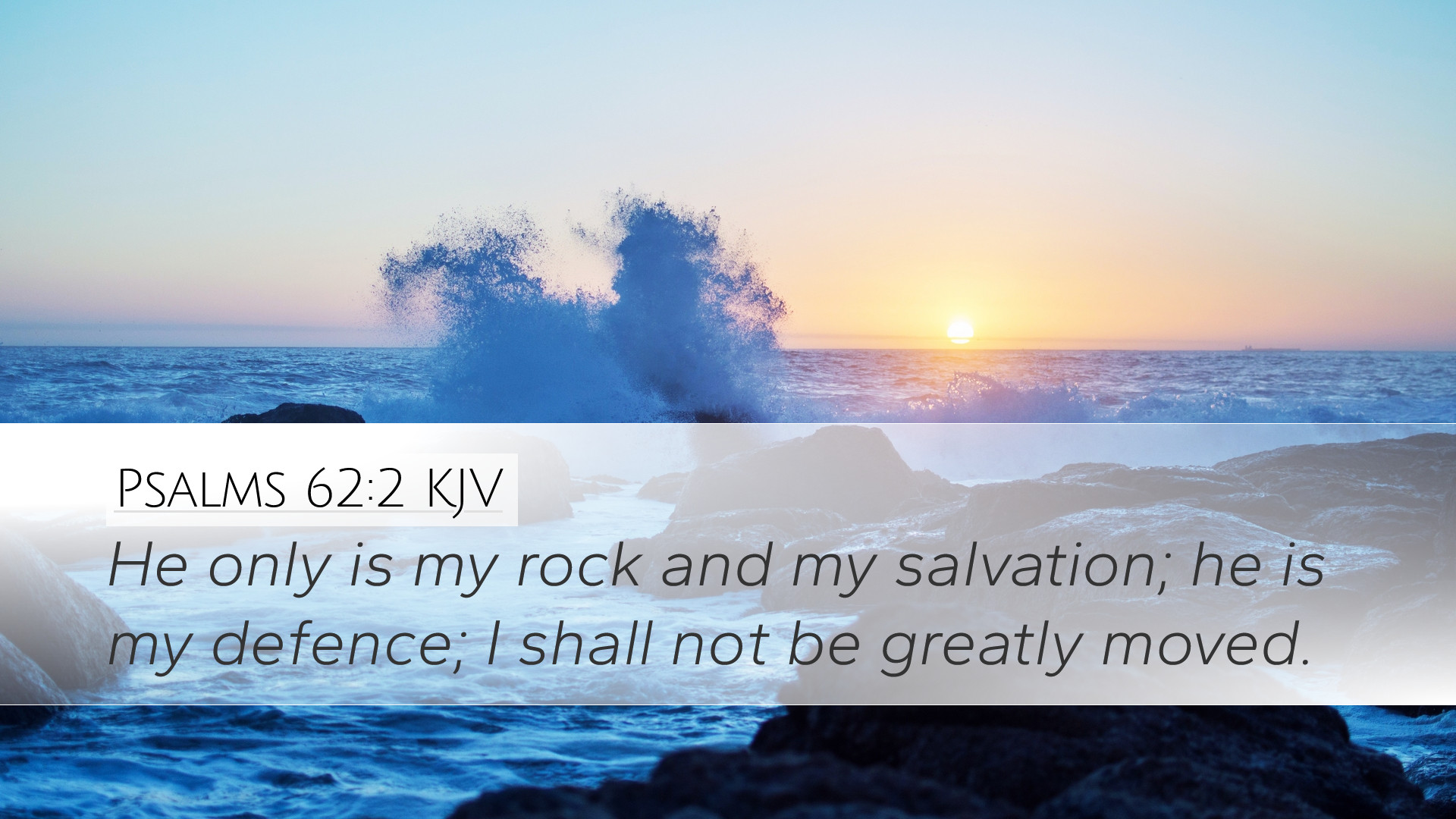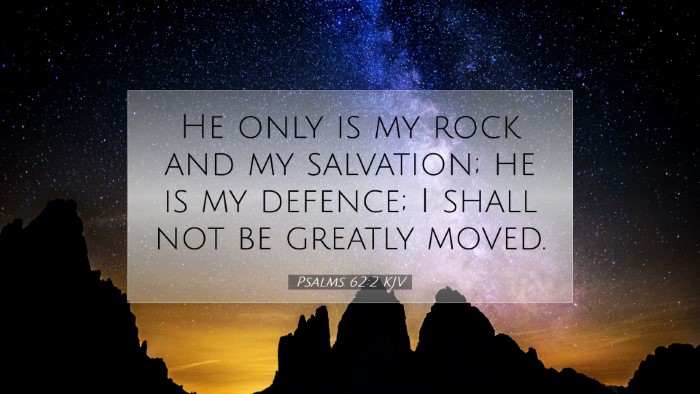Commentary on Psalms 62:2
Psalms 62:2: "He only is my rock and my salvation; he is my defence; I shall not be greatly moved."
Exegesis of the Text
This verse encapsulates a profound declaration of faith in God as the ultimate source of stability and security. The psalmist, expressing deep trust, affirms that God alone is his "rock" and "salvation." This metaphor of a rock suggests strength, permanence, and a firm foundation, reflecting the psalmist's unwavering confidence in God's protective nature.
Insights from Matthew Henry
Matthew Henry emphasizes the exclusivity of God's role in the believer's life: "He only is my rock." Henry asserts that in a world filled with shifting sands, God remains the steadfast anchor for our souls. The psalmist's declaration signifies a refusal to rely on any other sources for support or salvation. Henry further expounds that the term "salvation" encompasses both spiritual deliverance and the broader context of preservation from physical dangers.
Reflections from Albert Barnes
Albert Barnes notes that the phrase "he is my defence" highlights the protective qualities of God against adversarial forces. In discussing the implications of "I shall not be greatly moved," Barnes suggests that true reliance on God results in a deep-rooted stability that transcends life's uncertainties. He interprets the phrase as an assurance that while trials may come, the believer's foundation remains firm and unshakable in the face of adversity. The repetition of the word "only" enhances the exclusivity of God’s role, underscoring that no earthly force or power can substitute God’s protection.
Understanding from Adam Clarke
Adam Clarke offers a detailed analysis of the terms used, focusing on the words "rock," "salvation," and "defence." Clarke explains that the metaphor of "rock" not only pertains to stability but also signifies a source of nourishment, as rocks can conceal water sources, thus symbolizing spiritual sustenance. Clarke highlights that the affirmation “I shall not be greatly moved” is not a promise that obstacles will not arise but rather a declaration of an immovable faith despite them. The believer's perspective is not on the external circumstances but on the strength derived from God.
Theological Implications
This verse holds significant theological implications. It speaks to the nature of God as immutable and ever-present help. The psalmist’s faith demonstrates the covenant relationship between God and humanity, showcasing a deep-seated reliance on divine intervention and guidance. The assertions made in this verse echo throughout scripture, reinforcing the theology of God as refuge and fortress, as seen in other biblical texts such as Psalm 18:2 and Isaiah 26:3.
Practical Applications for Believers
For pastors, students, and theologians, Psalms 62:2 serves as a crucial reminder of the centrality of faith in God during turbulent times. It invites reflection on what we consider our “rocks” in life and challenges us to evaluate our dependencies. In practical ministry, this verse can be a source of comfort and resilience for those facing crises or challenges, reinforcing the message that God is indeed a stronghold for the oppressed and a refuge in times of trouble.
- Faith Building: Encourage conversations on the nature of God’s protection.
- Counseling: Use this verse to provide comfort to those struggling with doubt or fear.
- Teaching: Illustrate the contrast between worldly securities and divine assurance in sermons or Bible studies.
Conclusion
Psalms 62:2 stands as a powerful testament to the strength found in God alone. It encourages believers to anchor their hope in the immutable God who provides both salvation and security. As we reflect upon this scripture, may we find encouragement to a deeper trust in God, enabling us to face life's uncertainties with steadfast courage and faith.


